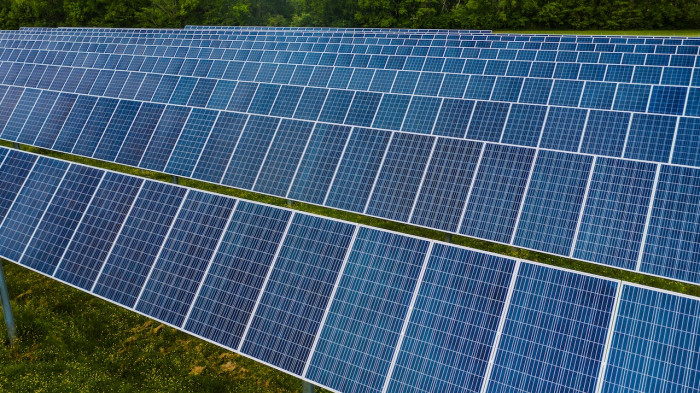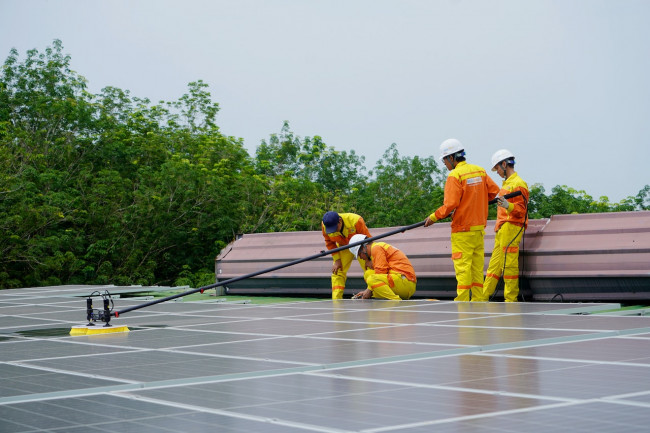
Introduction
In recent years, solar panels have become a prominent and eco-friendly source of renewable energy. These panels offer a sustainable way to generate electricity while helping reduce your carbon footprint. Yet, for solar panels to function at their best, they require consistent maintenance. This comprehensive guide takes an in-depth look at solar panels, outlining their myriad benefits, and focusing on critical maintenance practices such as solar panel cleaning and bird proofing.
The Benefits of Solar Panels
To appreciate the significance of solar panels, let's delve further into the many advantages they offer:
1. Renewable Energy Source
Solar panels utilize sunlight, an infinite source of energy. By capturing and converting sunlight into electricity, they contribute to a cleaner and more sustainable future.
2. Cost Savings
Solar panels can dramatically reduce, or even eliminate, your electricity bills over time. By generating your own electricity, you become less dependent on conventional utility providers, leading to substantial cost savings.
3. Environmentally Friendly
Solar power generation is clean and produces zero emissions. By harnessing the sun's energy, solar panels help lower greenhouse gas emissions and have a positive impact on the environment. This is particularly important in the face of climate change.
4. Increased Property Value
Installing solar panels can increase your property's overall value. Many homebuyers are increasingly seeking homes with solar panel systems due to their long-term cost savings and eco-friendly appeal.
5. Government Incentives
To promote solar panel adoption, many governments and local authorities offer tax incentives, rebates, and other financial benefits. These incentives make the initial investment in solar panels more attractive and affordable.
Solar Panel Cleaning
Solar panels must be clean to maximize their energy production. Dust, dirt, bird droppings, and other debris can accumulate on their surface, reducing their efficiency. Here's an in-depth look at how to properly clean your solar panels:
1. Regular Inspections
Frequent visual inspections are essential for your solar panels, ideally at least once a month. By keeping an eye out for visible dirt, debris, or signs of damage, you can identify and address issues promptly.
2. Gentle Cleaning
When cleaning your solar panels, use a soft brush, a non-abrasive sponge, or a specialized solar panel cleaning kit. Avoid abrasive materials that could scratch the surface of the panels, as scratches can reduce their efficiency.
3. Water Rinse
Before applying any cleaning solution, start with a gentle water rinse to remove loose dirt and grime. Avoid using high-pressure water, as this can damage the panels. Instead, use a garden hose with a gentle spray attachment.
4. Cleaning Solutions
For more stubborn dirt, stains, or bird droppings, use a mild soap solution or a specialized solar panel cleaning solution. Mix a few drops of mild soap with warm water and apply it with a soft sponge or cloth. Alternatively, you can use a dedicated solar panel cleaning solution following the manufacturer's instructions. Avoid using ammonia-based or abrasive cleaners, as they can harm the panels' protective coatings.
5. Safety Precautions
Safety is paramount when cleaning solar panels. Ensure the solar panel system is turned off during cleaning to prevent any electrical hazards. It's also crucial to take the necessary precautions when working at heights, such as using a stable ladder and having someone nearby to assist in case of an emergency.
Bird Proofing
Birds often find solar panels an attractive place to nest. However, their presence can lead to various issues, including damage to the panels and reduced efficiency. To protect your solar panel system from bird-related problems, consider these strategies for bird proofing:
1. Install Bird Mesh
Bird mesh or netting is an effective means of creating a physical barrier between the panels and the birds. Ensure the mesh is securely installed, so birds cannot access the area beneath the panels.
2. Bird Spikes
Bird spikes, specifically designed to be harmless to birds, can be placed on the edges of solar panels to deter birds from landing on them. These spikes prevent perching without causing harm.
3. Visual Deterrents
Birds are often deterred by reflective or moving objects placed near the solar panels. These visual deterrents make the area less appealing for nesting.
4. Regular Inspections
Regular checks are vital to ensure that there are no signs of birds nesting or causing damage to your solar panels. Early detection and preventive measures are key to avoiding more significant issues.
Maximizing Solar Panel Efficiency
To ensure that your solar panels are consistently efficient and provide the maximum return on your investment, there are several additional factors to consider:
1. Proper Placement
Solar panels should be correctly placed to receive maximum sunlight throughout the day. Factors such as the angle and orientation of the panels can significantly impact their performance.
2. Monitoring Systems
Consider investing in a solar panel monitoring system that allows you to track the performance of your panels in real-time. This technology helps you detect any issues promptly.
3. Professional Inspections
While regular visual inspections are essential, it's also a good idea to schedule professional inspections periodically. Experts can assess the condition of your panels and address any maintenance needs.
4. Long-Term Warranties
When selecting solar panels, pay attention to the warranty offered by the manufacturer. High-quality panels often come with extended warranties, providing peace of mind for years to come.
5. Financial Incentives
Keep an eye on government incentives and rebates, as they can change over time. Taking advantage of these programs can further reduce the overall cost of your solar panel system.
Solar Panel Lifespan and Maintenance Costs
Solar panels are a significant investment, and understanding their lifespan and associated maintenance costs is crucial for a comprehensive guide.
Lifespan
High-quality solar panels are designed to be durable and have a long lifespan, typically ranging from 25 to 30 years or more. Many manufacturers offer warranties to guarantee their performance during this period, giving you peace of mind. However, it's essential to understand that while solar panels can continue to generate electricity beyond their warranty period, their efficiency may gradually decrease over time. This decrease, known as degradation, typically occurs at a rate of about 0.5% to 1% per year.
To maximize the lifespan of your solar panels, regular maintenance and cleaning are essential, as discussed earlier in this guide. Proper maintenance helps mitigate wear and tear, ensuring that your panels continue to perform efficiently for decades.
Maintenance Costs
The maintenance costs for solar panels are relatively low compared to the potential energy savings they offer. The primary maintenance expenses include:
Cleaning: As we've discussed in detail, regular cleaning is necessary to ensure optimal energy production. The cost of cleaning equipment or services, as well as the time invested, is the primary expense.
Inspections: Routine inspections, both visual checks and periodic professional assessments, might incur costs, but these are generally modest.
Repairs: In rare cases, you may need to address specific issues, such as wiring problems or inverter malfunctions. The cost of repairs can vary, so it's advisable to budget for these potential expenses.
Replacement Parts: Over the years, some components, like inverters, may need replacement. These costs are typically lower than the initial installation expense.
Warranty Coverage: If any issues occur within the warranty period, the manufacturer typically covers the cost of replacement parts and repairs. Ensure you are aware of the terms of your warranty to avoid unexpected expenses.
Bird Proofing: Bird proofing measures, if required, can involve some initial expenses, such as installing bird spikes or mesh. However, these are relatively small investments compared to the potential damage that birds can cause.
Overall, the cumulative maintenance costs for solar panels are minimal when compared to the savings and benefits they offer. When considering the return on investment for solar panels, it's essential to weigh these maintenance expenses against the long-term energy savings and the positive environmental impact.
Conclusion
In conclusion, solar panels represent a sustainable and cost-effective solution for homeowners seeking to reduce their carbon footprint and electricity bills. By understanding the benefits of solar panels, implementing effective maintenance practices like cleaning and bird proofing, and considering the lifespan and maintenance costs, you can harness the power of the sun for decades of clean, renewable energy. Solar panels are not only an investment in your home but also in the future of our planet, providing an eco-friendly and economically sound path to energy independence. Embrace solar power, maintain your panels, and enjoy the long-lasting rewards of eco-friendly electricity.











